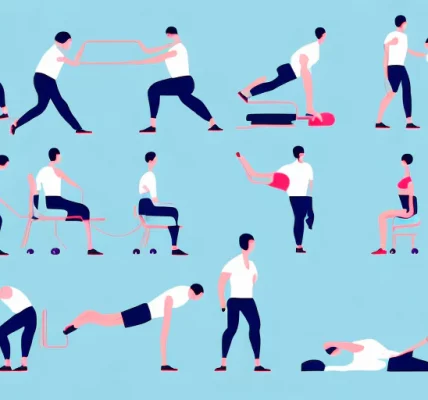Chronic Pain Understanding and Managing Persistent Discomfort
Chronic pain is a persistent pain condition that lasts for several months or longer. It can significantly impact a person’s quality of life, affecting physical, emotional, and social well-being.
Common Types of Chronic Pain
- Arthritis: A degenerative joint disease that causes joint pain and stiffness.
- Fibromyalgia: A chronic condition characterized by widespread musculoskeletal pain.
- Neuropathic Pain: Pain caused by damage to the nervous system.
- Chronic Headaches: Persistent headaches, such as migraines or tension headaches.
- Back Pain: Chronic lower back pain can be caused by various factors, including poor posture, muscle strain, or disc problems.
Managing Chronic Pain
Managing chronic pain often requires a multi-faceted approach. Here are some strategies:
- Medication: Pain relievers, such as over-the-counter medications or prescription pain medications, can help manage pain.
- Physical Therapy: Physical therapy can help improve flexibility, strength, and range of motion, reducing pain and improving function.
- Occupational Therapy: Occupational therapy can help individuals adapt to pain and perform daily activities.
- Alternative Therapies: Techniques like acupuncture, massage therapy, and mindfulness meditation can help manage pain and reduce stress.
- Cognitive Behavioral Therapy (CBT): CBT can help individuals develop coping strategies and reduce the emotional impact of chronic pain.
- Interventional Pain Management: Procedures like nerve blocks and spinal cord stimulation may be used to target specific pain sources.
Coping with Chronic Pain
Living with chronic pain can be challenging, but there are strategies to cope:
- Pacing Activities: Break down daily tasks into smaller, manageable steps.
- Stress Management: Practice relaxation techniques like deep breathing, meditation, or yoga.
- Healthy Lifestyle: Maintain a healthy diet, get regular exercise, and prioritize sleep.
- Social Support: Connect with others who understand your experiences and offer support.
- Seek Professional Help: Don’t hesitate to seek help from a healthcare provider or mental health professional.
By understanding the nature of chronic pain and implementing effective management strategies, individuals can improve their quality of life and live with less pain.




